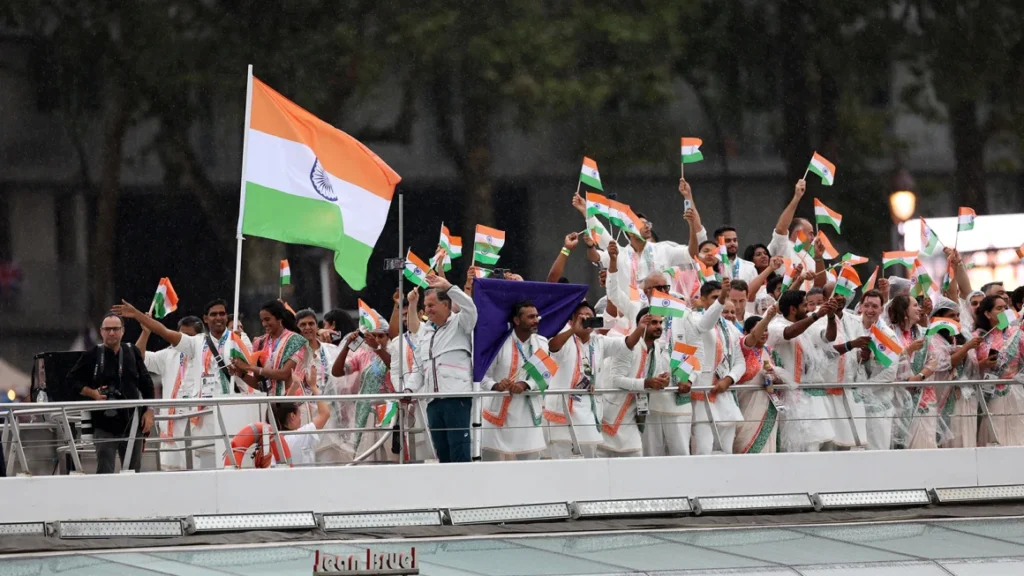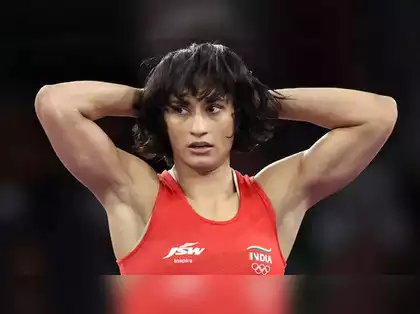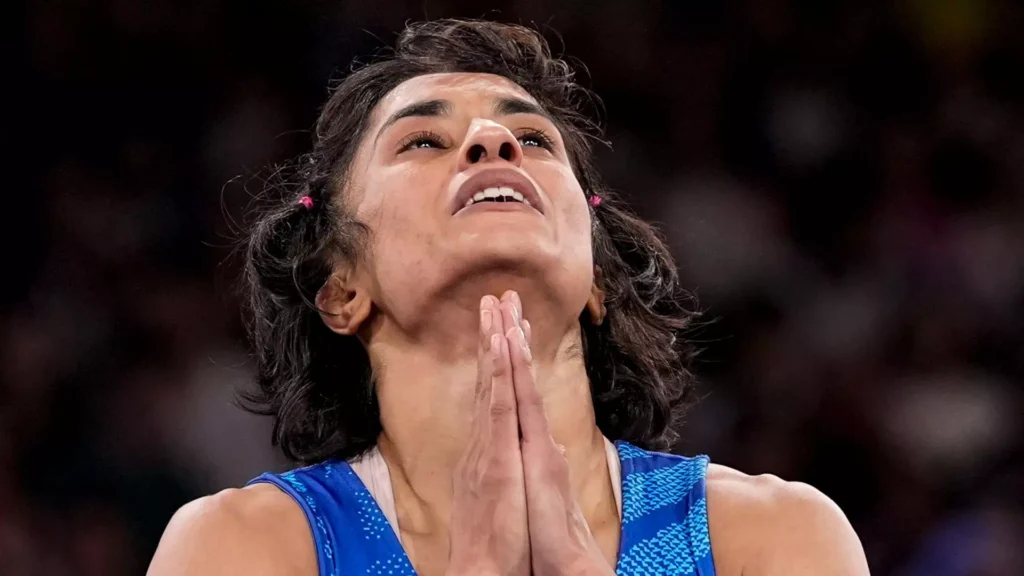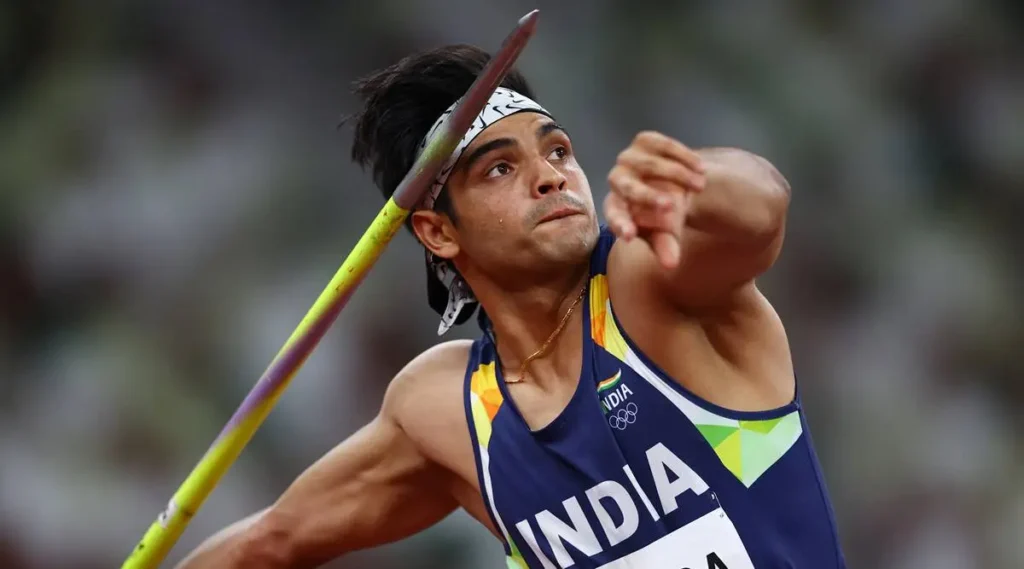No Golds for India: Why the World’s Most Populous Country Punches Below Its Weight at the Olympics

India, a nation of over 1.4 billion people, has made significant strides on the global stage in recent decades. It has become the world’s fifth-largest economy, achieved remarkable feats in space exploration, and plays a pivotal role in international diplomacy. However, when it comes to the Olympics, India’s performance remains a puzzling enigma. Despite its vast population and resources, India has struggled to make a significant impact at the world’s most prestigious sporting event. This blog delves into the reasons behind India’s underwhelming Olympic record and explores what can be done to turn the tide. A Glimpse into India’s Olympic History India’s Olympic journey began in 1900 when Norman Pritchard, an Anglo-Indian athlete, won two silver medals in athletics. For a long time, India’s Olympic success was limited to field hockey, where the country dominated from 1928 to 1956, winning six consecutive gold medals. However, after the decline of hockey’s dominance, India’s Olympic performance dwindled, and the country struggled to find its footing in other sports. The turning point came in 2008 when Abhinav Bindra won India’s first-ever individual gold medal in the men’s 10-meter air rifle event at the Beijing Olympics. Bindra’s victory was hailed as a historic moment, sparking hopes that India would emerge as a sporting powerhouse. However, 16 years later, those hopes remain largely unfulfilled. India has won just one more gold medal since then, and its overall Olympic performance continues to lag behind nations with much smaller populations and fewer resources. The Population Paradox: Quantity vs. Quality One of the most perplexing aspects of India’s Olympic underperformance is the sheer size of its population. With over 1.4 billion people, India is the world’s most populous country. In theory, a large population should provide a vast pool of talent from which to draw potential Olympians. However, the reality is far more complex. India’s large population does not automatically translate into a proportionate number of elite athletes. Several factors contribute to this disconnect: Socioeconomic Disparities: A significant portion of India’s population lives below the poverty line, with limited access to basic necessities, let alone sports facilities. The high cost of training, equipment, and travel means that only a small fraction of the population can afford to pursue sports at a competitive level. Urban-Rural Divide: While urban areas have better access to sports infrastructure, the majority of India’s population resides in rural areas where such facilities are often nonexistent. This urban-rural divide limits the talent pool and hinders the discovery and development of potential athletes. Cultural Priorities: In India, academic achievement is often prioritized over sports. Many parents view sports as a distraction from studies, and aspiring athletes face pressure to focus on academics rather than pursuing their passion for sports. The Dominance of Cricket: A Double-Edged Sword Cricket is more than just a sport in India; it is a national obsession. The Indian Premier League (IPL), one of the world’s most lucrative cricket tournaments, attracts millions of viewers and generates billions of dollars in revenue. However, cricket’s dominance has overshadowed other sports, leaving them with limited resources, attention, and talent. The overwhelming popularity of cricket means that other sports struggle to gain a foothold in India’s sporting landscape. Aspiring athletes in disciplines like athletics, gymnastics, or swimming often face an uphill battle in securing funding, sponsorship, and media coverage. This lack of support stifles the growth of talent in Olympic sports and contributes to India’s underwhelming performance on the global stage. Challenges in Sports Infrastructure and Training A critical factor in Olympic success is access to world-class sports infrastructure and training facilities. Unfortunately, India lags behind in this area. While there have been some improvements in recent years, the country still faces significant challenges: Lack of Facilities: Many athletes in India lack access to basic training facilities, let alone state-of-the-art infrastructure. This is especially true in rural areas, where aspiring athletes often have to make do with makeshift training environments. Inadequate Coaching: The quality of coaching in India varies widely. While there are some excellent coaches, many athletes are trained by coaches who lack the expertise and experience needed to develop Olympic-level talent. Additionally, there is a shortage of specialized coaches in disciplines that are not widely practiced in India. Limited Sports Science Support: Sports science, including nutrition, physiotherapy, and psychology, plays a crucial role in an athlete’s performance. However, access to these resources is limited in India, especially outside major cities. This lack of support can hinder an athlete’s ability to reach their full potential. Fragmented Sports Administration: India’s sports administration is often criticized for being fragmented and inefficient. Multiple organizations, both governmental and non-governmental, are involved in sports development, leading to a lack of coordination and focus. Additionally, bureaucracy and corruption have hampered efforts to improve sports infrastructure and training in the country. Socioeconomic Barriers to Sporting Success Socioeconomic factors play a significant role in shaping India’s Olympic fortunes. The country’s vast economic disparities mean that only a small percentage of the population has the financial means to pursue sports seriously. Many talented athletes come from humble backgrounds and face numerous challenges in their quest for success: Financial Constraints: Training for the Olympics is an expensive endeavor. It requires access to quality coaching, equipment, and facilities, as well as the ability to travel for competitions. For many Indian athletes, these costs are prohibitive. Even those who show promise often have to rely on government grants, sponsorships, or crowdfunding to continue their training. Lack of Job Security: Unlike in some countries where athletes receive financial support from the government or are employed in sports-related roles, many Indian athletes have to balance their training with other jobs to make ends meet. This lack of financial stability can make it difficult for athletes to dedicate themselves fully to their sport. Gender Inequality: Female athletes in India face additional challenges, including societal expectations, limited access to facilities, and safety concerns. Despite recent successes by female athletes like P.V. Sindhu and Mary Kom, gender inequality remains a significant barrier
Vinesh Phogat Hints at Retirement U-Turn with ‘Could See Myself Playing Till…’ Remark

Indian wrestling star Vinesh Phogat has recently ignited curiosity and excitement among her fans with a surprising hint about her potential return to the sport. The accomplished wrestler, who had previously announced her retirement, seems to have reconsidered her decision. Her recent comments suggest she might continue her career longer than anticipated, reigniting discussions about her future in wrestling. The Hint That Sparked Speculation In a recent interview, Vinesh Phogat made a statement that has left many speculating about her next move. She mentioned, “I could see myself playing till…,” without completing the sentence, leading to widespread interpretations. This remark is particularly surprising, as she had earlier announced her intentions to step away from wrestling after the Tokyo Olympics. Phogat’s remark is significant because it signals a possible shift in her mindset. For an athlete of her caliber, such a decision is not made lightly, and it reflects her enduring passion for wrestling. Fans and analysts are now left wondering what exactly prompted this change in her outlook. Vinesh Phogat’s Journey in WrestlingVinesh Phogat’s journey in the world of wrestling has been nothing short of inspiring. Coming from the renowned Phogat family, she has established herself on the global stage. She has won multiple international medals, including gold at the Commonwealth Games and the Asian Games. Her resilience and dedication to the sport have made her a role model for aspiring athletes. Her career has not been without its challenges, however. Vinesh has faced serious injuries, including a devastating knee injury at the Rio Olympics in 2016 that forced her to withdraw from the competition. Despite these setbacks, she has always managed to come back stronger, showcasing her fighting spirit and determination. What Could the Future Hold?Vinesh Phogat’s recent hint at extending her career is exciting news for her fans and the wrestling community. If she decides to continue, it could mean more opportunities for her to compete at the highest level and potentially add to her impressive medal tally. Moreover, her continued presence in the sport could be crucial for Indian wrestling, as she has been a significant influence on the younger generation. Her experience and knowledge could be invaluable in mentoring young wrestlers and helping India achieve more success in international competitions. The Road AheadAs Vinesh Phogat contemplates her future, it is clear that her decision will be closely watched. Whether she decides to extend her career or not, her legacy in Indian wrestling is already secure. She has inspired countless individuals and has played a pivotal role in putting Indian women’s wrestling on the global map. In the meantime, fans will be eagerly awaiting further updates from Vinesh herself. Her recent remark has undoubtedly stirred excitement, and if she chooses to stay in the sport, it could mean more thrilling performances and unforgettable moments on the wrestling mat. Conclusion Vinesh Phogat’s potential retirement U-turn is a testament to her enduring love for wrestling. While the exact details of her plans remain unknown, one thing is certain – Vinesh Phogat’s impact on Indian sports is profound, and her journey is far from over. Whether she chooses to retire or continue, her legacy will continue to inspire future generations of athletes.
Vinesh Phogat’s Petition for Silver in Olympics 2024 Dismissed

Indian wrestler Vinesh Phogat, a well-known figure in the wrestling arena, encountered a significant obstacle when her appeal for the silver medal at the 2024 Olympics was turned down. This decision, which has ignited considerable debate, has left her fans and followers in India and worldwide feeling let down and questioning the fairness of the decision-making process. The BackgroundVinesh Phogat, who has consistently brought honor to India on the international stage, entered the 2024 Olympics with high expectations. Recognized for her toughness and commitment, Phogat was seen as one of the leading contenders for a medal in her category. Her path to the Olympics has been incredibly inspiring, overcoming injuries and obstacles to represent her nation. However, during the competition, Phogat found herself in a contentious situation. In a closely fought match, a series of rulings by the referees and officials led to her missing out on what could have been a silver medal. Phogat and her team believed that the rulings were unjust and filed a petition to have the match reviewed and to award her the silver medal. The Petition and Its DismissalPhogat’s petition was based on allegations of biased officiating and procedural irregularities. Her team argued that the referees made numerous questionable decisions that were against Phogat, ultimately leading to her defeat. They submitted video evidence and expert opinions to back their argument, hoping that the International Olympic Committee (IOC) would take the matter seriously. However, after weeks of discussion, the IOC rejected Phogat’s petition. In their official statement, the committee declared that they found insufficient evidence to reverse the match’s outcome. They highlighted that the decisions of the referees are final and enforceable, and unless there is clear proof of misconduct or mistake, the results of the matches will stand. Reactions and Aftermath The rejection of Vinesh Phogat’s petition has led to a flurry of reactions from the wrestling community, sports enthusiasts, and the media. Many have voiced their disappointment on social media, calling for more transparency in the officiating at such high-profile competitions. Indian sports officials and Phogat’s supporters have also expressed their concerns. Some have argued that the decision points to a broader issue of favoritism and inconsistencies in officiating at international sports events, especially those involving athletes from less powerful nations. Phogat herself has shared her feelings on social media, maintaining her composure in her response. She thanked her supporters for their steadfast belief in her and promised to return stronger in future competitions. “This is not the end; it’s just a chapter in my journey. I will continue to fight for justice, both in and out of the ring,” she said. Regarding Vinesh Phogat, what’s next?Vinesh Phogat is still one of India’s biggest sports stars in spite of the loss. Her fan base has become stronger as a result of her determination to carry on with her wrestling career and fight for justice. Her attention will probably be on future international events, where she hopes to demonstrate her abilities once more. This incident further emphasizes the necessity of stronger grievance procedures in the sports industry. Even though Phogat’s appeal was denied, it has raised awareness of the difficulties sportsmen face that go beyond mere physical competitiveness. For the time being, followers of Vinesh Phogat will be anticipating her next move in both her pursuit of justice and on the mat.
No Accountability from Authorities: Rahul Mehra on Vinesh Phogat Row

The Indian wrestling community has been rocked by the recent scandal involving top wrestler Vinesh Phogat, who has openly expressed her dissatisfaction with the Wrestling Federation of India (WFI) and the lack of backing from officials. In the midst of this chaos, Rahul Mehra, a prominent advocate and sports activist, has strongly criticized the officials for their negligence and failure to tackle the issues Phogat has raised. The Controversy Surrounding Vinesh PhogatVinesh Phogat, a celebrated wrestler in India, has led a movement against the WFI, accusing the organization of harassment, mismanagement, and favoritism. Her claims have ignited a significant debate within the sports community, shedding light on the deep-seated problems athletes in India face. Phogat’s bravery in speaking out has received mixed reactions, but what is clear is the lack of response and action from those in charge. Rahul Mehra’s PositionRahul Mehra, known for his relentless push for transparency and responsibility in Indian sports, has not hesitated to voice his disappointment over the situation. He has been critical of the officials, especially the WFI and the Ministry of Youth Affairs and Sports, for their failure to take responsibility. Mehra has pointed out that the officials have not taken the necessary measures to investigate the serious allegations Phogat has made. He has noted that instead of addressing the athletes’ concerns, the officials seem more interested in protecting their image and managing the situation. This strategy, according to Mehra, not only harms the athletes but also sets a dangerous precedent for future cases. The Call for ChangeThe situation involving Vinesh Phogat has highlighted the critical need for change within the Indian sports administration. Rahul Mehra has been pushing for a total transformation of the system, advocating for more openness, responsibility, and policies that prioritize athletes. He believes that the officials must be held accountable for their actions, and there should be a strong system in place to deal with athletes’ grievances. Mehra has also stressed the importance of creating a safe and supportive environment for athletes, where they can express their concerns without fear of backlash. He argues that only by addressing these systemic issues can India hope to build a flourishing sports environment that supports and nurtures its athletes. In conclusion, the ongoing dispute involving Vinesh Phogat and the WFI serves as a stark reminder of the obstacles athletes in India face. Rahul Mehra’s criticism of the officials underscores the urgent need for accountability and reform within the sports administration. As the situation continues to unfold, it remains uncertain whether the officials will take the necessary steps to address these issues or continue to evade responsibility. For the betterment of Indian sports and its athletes, it is crucial that this controversy leads to significant changes and a shift towards a more athlete-focused approach in the future.
Neeraj Chopra Secures Silver Medal for India in the 2024 Olympics

Neeraj Chopra, often referred to as India’s premier athlete in athletics, has once again etched his name in history by clinching a silver medal in the javelin throw at the 2024 Paris Olympics. This incredible feat not only solidifies his status as one of India’s most celebrated athletes but also acts as a beacon of hope for countless individuals back home. A Path of Commitment and Outstanding PerformanceNeeraj Chopra’s path to the 2024 Olympics has been nothing short of remarkable. Following his gold victory at the Tokyo 2020 Olympics, Chopra rose to fame across India. His relentless commitment to his sport, intense training, and focused mindset have distinguished him from his competitors. The silver medal at the Paris Olympics is a reflection of his consistent excellence and his drive to maintain his position at the forefront. The Exciting ConclusionThe javelin throw competition in Paris was a tense battle among the world’s top athletes. Neeraj’s throw of 88.44 meters earned him the silver medal, just missing out on the gold by a fraction. Although he couldn’t match his success in Tokyo, Neeraj’s performance was outstanding. He demonstrated his talent, strength, and calm under pressure, showcasing his reason for being considered among the best in the world. Significance for Indian SportsNeeraj Chopra’s accomplishment is not merely a personal victory but also a landmark moment for Indian sports. His triumph in the javelin throw has shone a light on athletics in a country where cricket often takes center stage. Chopra’s consistent achievements have encouraged a new wave of athletes to embrace sports and strive for greatness. His silver medal at the Paris Olympics highlights India’s potential to excel in various sports on the international stage. The Future AheadAt the age of 26, Neeraj Chopra has much more to contribute to Indian sports. With his sights set on future competitions and possibly another Olympic appearance, Neeraj continues to inspire and motivate young athletes. His journey from a humble background in Haryana to the global stage is a testament to his hard work, determination, and indomitable spirit. In summary, Neeraj Chopra’s silver medal at the 2024 Paris Olympics is a moment of national pride for India. It not only enhances his remarkable career but also encourages the nation to dream big and aim for excellence. Neeraj’s legacy is far from over, and the world eagerly anticipates his future achievements.
